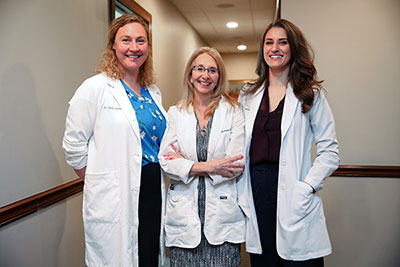 Functional medicine attempts to treat the cause of symptoms with minimal education and training—many times just a weekend course. There are no licensing or minimum requirements to be called a functional medicine practitioner—anyone can call themselves a functional practitioner. From what I see, it is an approach consisting of “throwing everything at you and hoping something sticks.” It involves over testing and over treatment. Because there is no standard of education or training, they use flow charts and produce solutions that are not specific or that they are unable to medically defend.
Functional medicine attempts to treat the cause of symptoms with minimal education and training—many times just a weekend course. There are no licensing or minimum requirements to be called a functional medicine practitioner—anyone can call themselves a functional practitioner. From what I see, it is an approach consisting of “throwing everything at you and hoping something sticks.” It involves over testing and over treatment. Because there is no standard of education or training, they use flow charts and produce solutions that are not specific or that they are unable to medically defend.
A good practitioner takes a detailed case along with a physical exam and puts it together like a detective. Minimal labs are needed if you know what you are doing. Also, minimal supplementation is needed if the cause is known. Without proper education and training the functional approach is ineffective. Functional medicine is another fad like “integrative” or “holistic” practitioners, terms used to draw natural patients to them like a sheep in wolves clothing.
NDs are the experts in natural medicine and are trained to find and treat the cause of problems. NDs have 4 doctorate years of medical training and education with a focus on physiology which is the study of how the body functions. An ND’s education has more hours of study in physiology than any other practitioner of a medical discipline.
Naturopathic medicine is a system of medicine guided by a therapeutic order and the principles of naturopathic medicine.
Currently, 26 jurisdictions (23 states plus the District of Columbia, Puerto Rico, and the U.S. Virgin Islands) have licensing or registration laws for naturopathic doctors (NDs/NMDs). In these jurisdictions, naturopathic doctors are required to graduate from accredited four-year residential naturopathic medical programs and pass an extensive postdoctoral board examination (NPLEX) in order to receive a license or registration. Licensed and registered NDs have a specific scope of practice as defined by their state’s law and must fulfill state-mandated continuing education and reporting requirements.
For more information about licensing, visit the Naturopathic Physicians Licensing Examination Board (NPLEX) and the North American Board of Naturopathic Examiners (NABNE).
